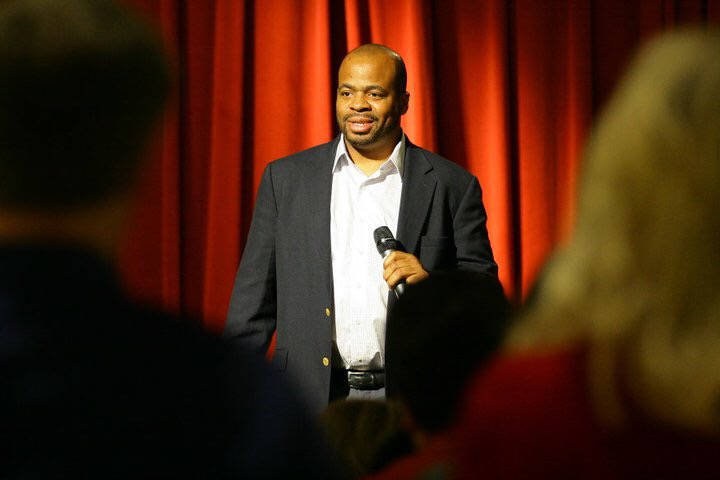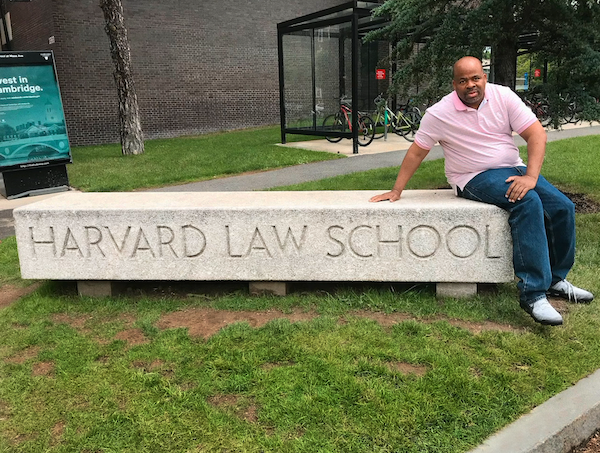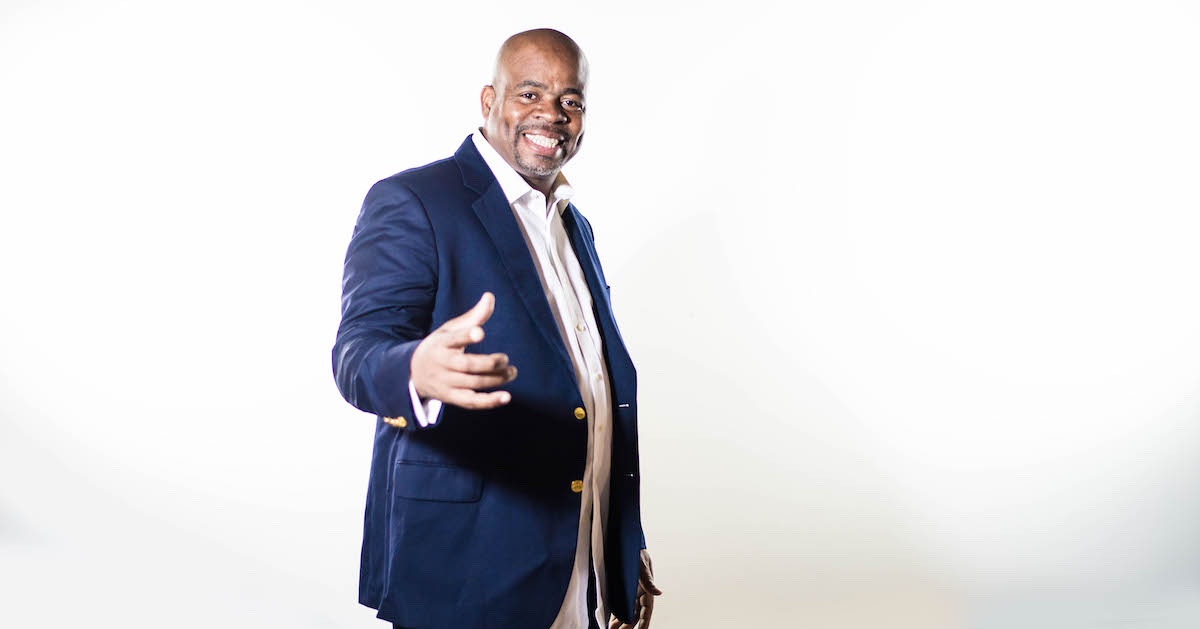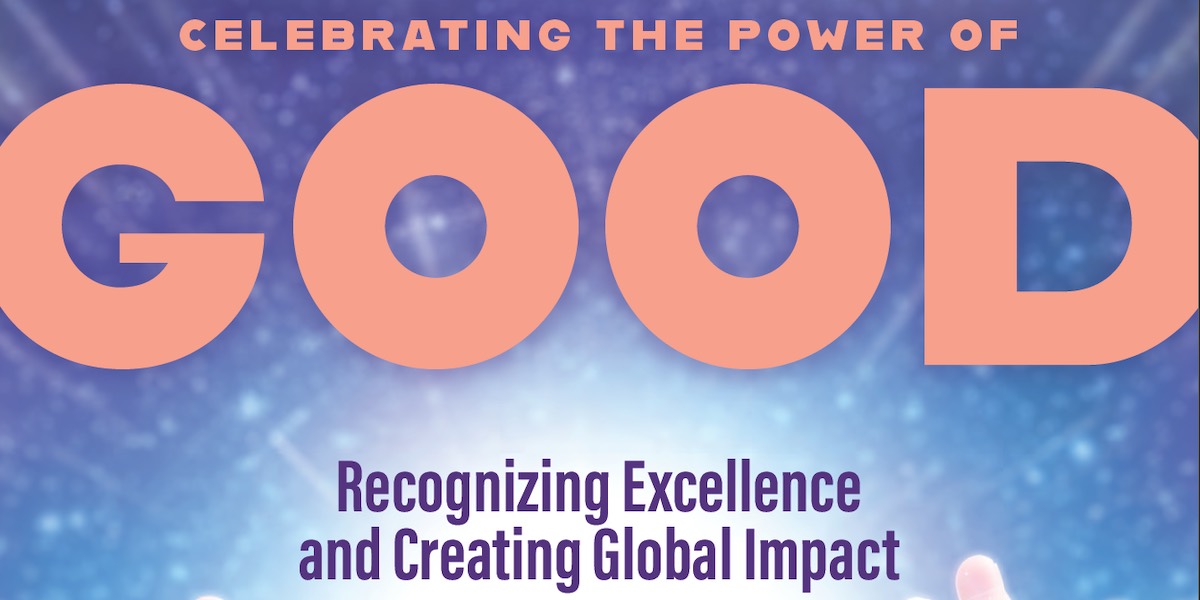Andre Norman's IMEX America keynote session, “Prison to Harvard: The Power of Belief and Self-Motivation" is sponsored by Visit Anaheim.The biggest prison isn’t made of concrete and steel, Andre Norman says. It’s the one we build in our own minds. Norman has seen this everywhere, from cell blocks to corporate boardrooms. People get comfortable with their limitations. They tell themselves stories about why they can’t succeed or why they can’t change.
“It’s easier to stay in that familiar discomfort than to risk failure by trying something new,” Norman says. “But here’s the truth: those obstacles you’re facing? They’re not there to stop you. They’re there to test how badly you want to succeed. Overcoming them starts with changing your mindset, challenging your assumptions and, sometimes, having the humility to ask for help. It’s about realizing that your past doesn’t define your future unless you let it.”
This mindset, that you’re responsible for your choices and future regardless of the circumstances, has been the cornerstone of Norman’s life.
“True freedom starts in the mind. You can be physically confined, but if you free your mind, you’re unstoppable,” he says. “I apply this lesson every single day and teach it to others. Whether you’re in an actual prison or trapped in a prison of your own making—a dead-end job, a toxic relationship or limiting beliefs—you always have the power to choose your response to your circumstances. That choice is where your true power lies.”

Leaders are readers
Norman knows a thing or two about overcoming obstacles. When he was younger, he was sentenced to 100 years in prison, even serving two years in solitary confinement. But he decided to turn his life around, and he wanted to attend Harvard University. So, for eight years, he taught himself how to read and the law.
“Reading was my ticket out of a life sentence, both literally and figuratively,” Norman says. “It opened up worlds I never knew existed and showed me possibilities I’d never imagined.”
For leaders, reading isn’t just about gaining knowledge, he says. It’s about expanding your understanding of the human experience.
“When you read, you’re stepping into someone else’s shoes, seeing the world through their eyes,” Norman says. “This builds empathy, which is crucial for effective leadership. I’ve worked with leaders all over the world, and I can tell you, the ones who read widely are often the most innovative, adaptable and connected to their teams. They’re better equipped to navigate complex challenges because they’ve explored different perspectives and ideas through books. Reading also sharpens your critical thinking skills, which are essential for making tough decisions and driving real change. So, if you want to be a better leader, start by being a better reader.”

Second chances are real
Norman will be an MPI keynote speaker during Smart Monday, powered by MPI, at IMEX America in Las Vegas, Oct. 7. His session, “Prison to Harvard: The Power of Belief and Self-Motivation,” will take attendees on a journey from his time as a gang leader to achieving his goal of getting into Harvard.
“I’m not here to sugarcoat things or give you some feel-good speech,” Norman says. “I’m bringing you the raw truth about transformation and resilience, straight from someone who’s lived it. We’re going to dive into my journey from facing over 100 years in prison to teaching at Harvard, but that’s just the starting point.”
He says he’s going to challenge attendees to look at their own lives and organizations differently, exploring practical strategies for turning their biggest obstacles into their greatest opportunities.
“By the time we’re done, I want every single one of you to walk out of that room ready to drive real change and achieve things you never thought possible,” Norman says. “It’s time to stop making excuses and start making moves.”
Working with organizations to create environments where people can truly thrive and innovate is one way Norman defines success. It’s also when he can use his experiences and insights to break down barriers and create real opportunities for others.
“I feel successful every time I help someone realize they’re not defined by their worst mistakes,” he says. “Ultimately, success to me is contributing to a world where second chances are real, where resilience is celebrated and where people and organizations are empowered to overcome their challenges and achieve extraordinary things. It’s about leaving this world better than I found it, one transformed life at a time.”







